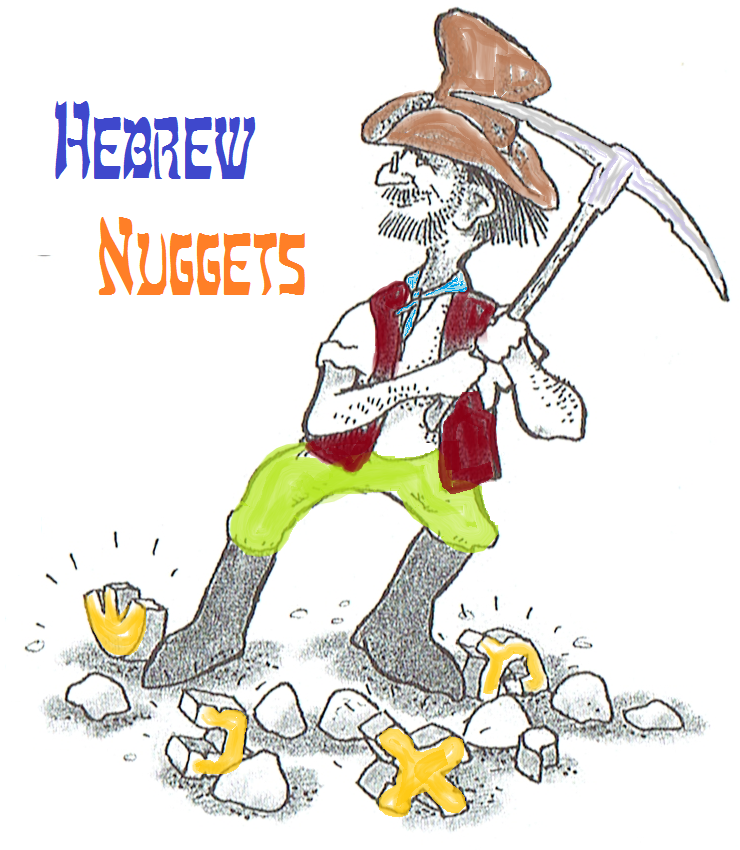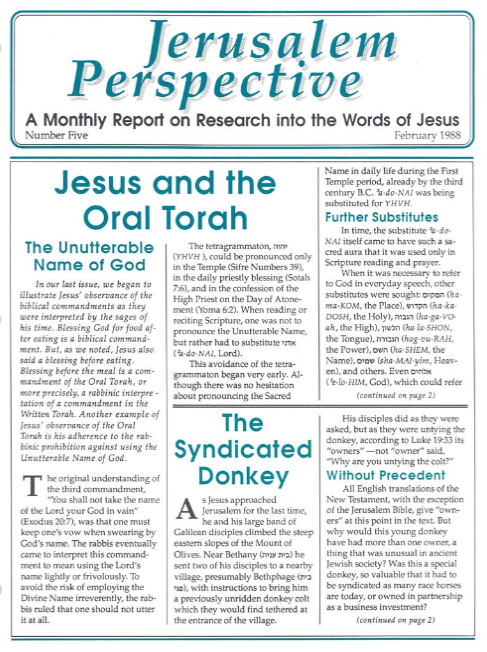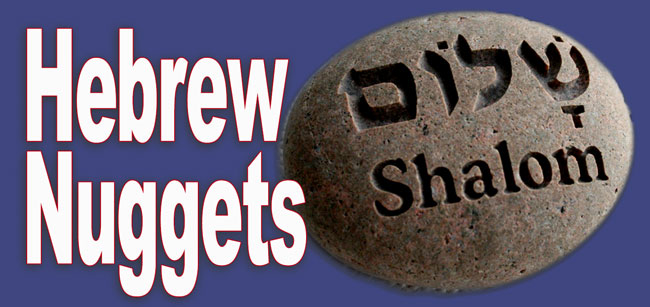Revised: 23-Aug-2015
Hebrew Nuggets is an article series that introduces beginners to Hebrew letters, Hebrew vocabulary and spiritual insights from the Hebrew tradition.
 Aramaic and Hebrew are sisters, both were Semitic languages that existed in close proximity in the time of Jesus in the lands at the eastern end of the Mediterranean. Aramaic was as similar to Hebrew as Swedish is to Norwegian, or Portuguese is to Spanish.
Aramaic and Hebrew are sisters, both were Semitic languages that existed in close proximity in the time of Jesus in the lands at the eastern end of the Mediterranean. Aramaic was as similar to Hebrew as Swedish is to Norwegian, or Portuguese is to Spanish.
Aramaic and Hebrew shared much of their vocabulary, and despite the fact that idioms are usually unique to each language, first-century Hebrew had many idioms in common with Aramaic. Aramaic speakers freely borrowed vocabulary from the Hebrew language, and Hebrew speakers likewise freely borrowed words from the Aramaic language. Abba, for instance, is an Aramaic word, but it is also a bona fide Hebrew word, used frequently by native Hebrew speakers of Jesus’ day.
Paid Content
Premium Members and Friends of JP must be logged in to access this content: Login
If you do not have a paid subscription, please consider registering as a Premium Member starting at $10/month (paid monthly) or only $5/month (paid annually): Register
One Time Purchase Rather Than Membership
Rather than purchasing a membership subscription, you may purchase access to this single page for $1.99 USD. To purchase access we strongly encourage users to first register for a free account with JP (Register), which will make the process of accessing your purchase much simpler. Once you have registered you may login and purchase access to this page at this link:
For the transliteration system used in this series, click here.
































































































